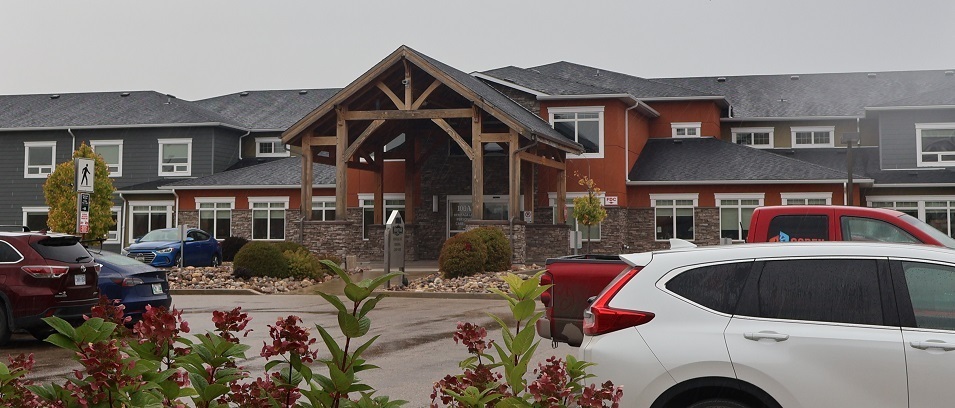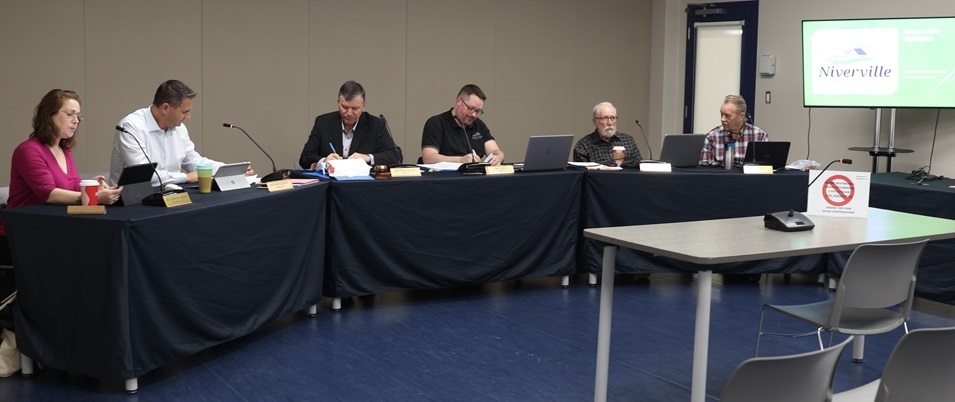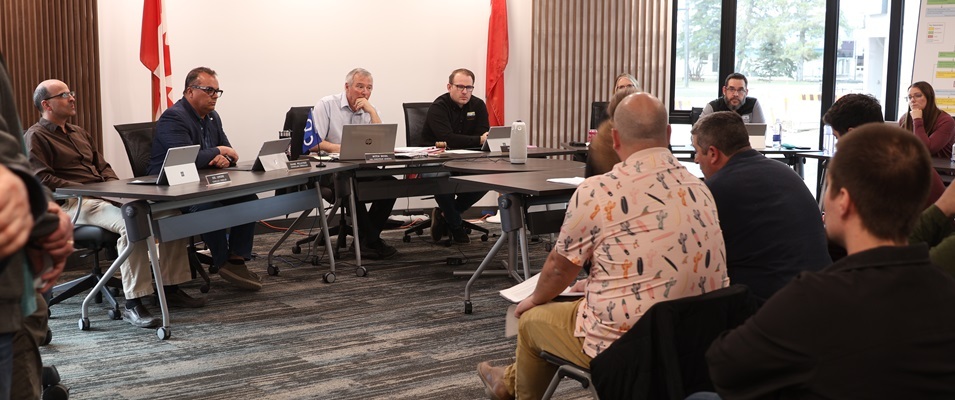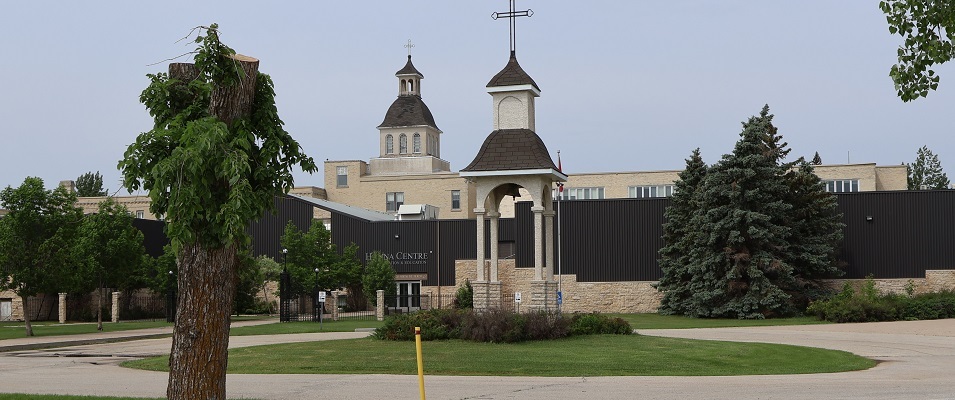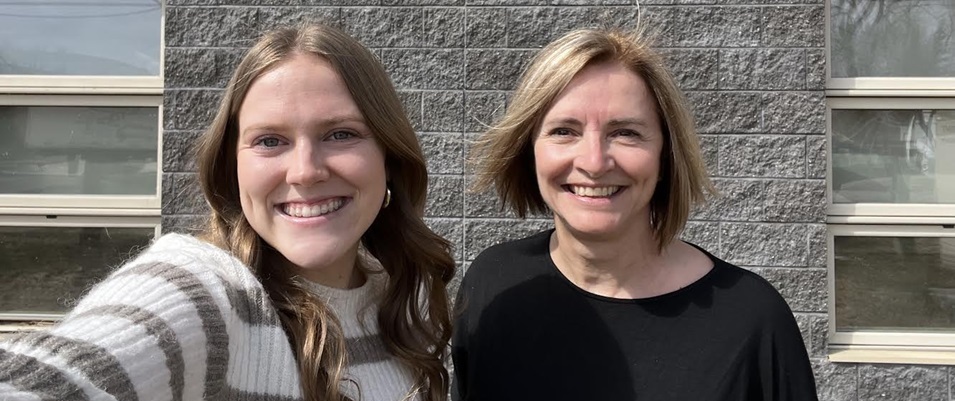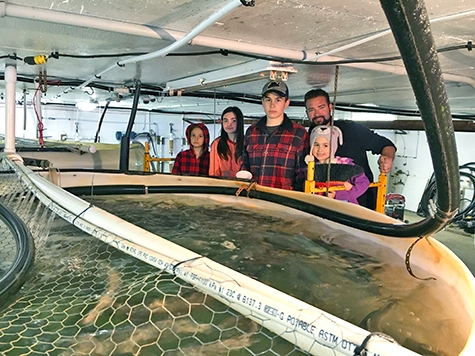
On a farm property just outside of Niverville, brothers Dallas and Dustin Wiebe have been dabbling in an agricultural experiment. Their “laboratory” is discreetly concealed within a 3,000-square-foot shop surrounded by the hog barns and outbuildings of Apex Farms. While there’s nothing controversial about this experiment, it’s certainly an unusual research project to find on the Manitoba prairies.
The Wiebe brothers are growing fish.
“We toured a fish farm that was for sale in 1997 and that got us itchy to eventually try it ourselves,” says Dustin. “Our goal is to see if we can create a system that could produce 200 ton of fish a year.”
But raising fish in an enclosed system is only part of the experiment. The elaborate setup utilizes a large portion of the shop, including a section where the duo also grows plants that feed off the fish. This kind of symbiotic farming is called aquaponics.
Aquaponics is a unique technique that incorporates aquaculture (growing fish) and hydroponics (growing plants without soil). In a typical combined system, the plants receive nutrients from the fish waste, or effluent. In turn, the plants filter the water that goes back to house the fish. In a sense, this method creates a uniquely collaborative and environmentally sustainable ecosystem.
The Wiebe brothers, though, have taken their system one step further. With water already plumbed into the nearby hog barns, it was the perfect source from which to draw water for the production plant. The water is moved from the barn to the fish, to the plants, back to the fish, and finally back to the barns to water the pigs, creating a highly sustainable system with virtually no water waste.
“It’s a way more efficient use of water,” says Dallas. “We are at over 99 percent recycling capacity and we’re getting the fish nutrients out of that too to grow plants.”
At it for a few years now, the brothers say that this project is still very much in its experimental stages. It’s been a long road of trial and error, but mostly error.
“We could have probably bought a bass boat by now, because that’s how much this system has cost us,” quips Dustin. “But the novelty of this is still pretty cool.”
Because of its high nutritional value, they’ve chosen to raise trout, a freshwater fish. Trout need a cleaner environment and lower water temperature than tilapia, a fish more typically used in aquaponics.
The entire system requires a delicate balance to maintain optimal ph levels and a water temperature of 10 to 16 degrees Celsius at all times. The Wiebes have fought with algae bloom and microscopic water impurities, requiring more and more advanced filtration systems.
At one point, they lost 100 nearly full-grown fish in 48 hours, requiring them to bail out the dead fish and start over. Eventually, they discovered the problem. Chlorine had been added to the water system just days earlier. While it’s a highly effective means of purifying water, the two parts per million that is safe for hogs and humans is two parts too many for trout, which has zero tolerance for chlorine.
While learning to raise fish has been a hard go, they have seen much success on the plant side. Dallas is a plant breeder interested in experimenting with new ways of raising edible plants with nominal environmental impact. In the aquaponics system, the team has grown tomatoes and soybeans. Their last batch of 16 tomato plants grew almost to the ceiling and provided a yield of about 25 tomatoes per day. Their root systems took well to the bed of granite in which they were planted. Using such a medium eliminates the risk of soil-borne diseases. The fertilizer derived from the fish effluent also means no need for chemical fertilizers.
“If you’re trying out a new technique, it can get very expensive if you’re doing it on a thousand acres,” says Dallas. “Here we can try something out and it costs us way less and I can see whether that technique actually works or not. It’s really accelerating the learning curve.”
As a result of the grow lights above the plants and the humidity from the giant fish tanks, the shop maintains a very high temperature all year round, giving them a full two and a half growing seasons.
As questions arise regarding the safety of eating farmed or even wild fish in terms of mercury levels and other toxins, the brothers agree that land-based and ethical fish farming eliminates that concern while creating a much smaller ecological footprint. Unfortunately, the capital costs to build a large-scale system such as they have makes it somewhat inhibitive.
Caged agriculture, Dustin says, usually takes place at the mouth of a river or ocean, making it easy for a company to flush the byproducts of nitrogen and phosphorus directly into the waterway. Sea life that naturally lives in those waterways is adversely affected, as are humans who need clean water sources in the long-term.
“It’s way easier and more cost-effective to just use the ocean as your toilet,” says Dustin. “But what we are doing here is sustainable, it’s green, we’re not polluting the environment, not overfishing the oceans, and there’s no risk of growing a species of fish here and having it go loose into the ecosystem.”
But in the end, he admits that quality food products are a hard sell in a cheap-food market.
“At the end of the day, many people still buy food with their wallet and not their heart,” Dustin says. “So if people see a cheaper fish product, that’s what they buy. Is this better? I would say so. You know you’re not getting mercury and lead from the fish.”
One of the joys of the fish farm, the brothers say, is bringing their children to the plant. The children get to experience what it’s like to feed 250 five-pound fish. They also gain an understanding of where their food comes from. Another obvious bonus is the freezer full of organically grown fish after their 18-month growing season is over.
As for fish farming on a large scale, the brothers agree that only time will tell. They’ve got a lot of irons in the fire with a new lambing farm, tending to their hogs, and raising crops during the growing seasons. Busy is their way of life.





